|
I’m thinking about words today, and how they help us determine an experience. More pointedly, what we experience in an experience.
The title of this post illustrates this idea a bit—three same-sounding words with different meanings, depending on how and when they’re used. Let’s look at this a bit closer, but we’ll start something a little off-color. NOTE: If you’re at work, you might want to put in your ear buds before you hit play. Ditto if there are young ones around. There’s some colorful language in this clip: https://www.youtube.com/watch?v=k4gKPULa41Q Okay, so I confess. I laughed ‘til I cried the first time I watched that video. I do have a bit of warped sense of humor so maybe that’s not all that surprising. Sham wasn’t very nice to this guy, was he? He kinda did what he wanted to do, despite the rider’s begging and pleading for a good part of two minutes. How often does life feel like this? We set out with hopeful intent and things just go sideways. Out of our control. A big WHOA! (Or woah, depending on your preference/place of birth). Our tendency to react makes these kind of events tricky. This kind of whoa can quickly turn into a woe. A victim narrative—“I did all this and this is what I get? Why is this happening to me? I don’t deserve this!” You get the idea. With that frame of mind—that filter—suddenly many things seem to be following the same disastrous route, both from our past and in our present. Our brains start logging evidence of how MANY things don’t go our way. We begin, rather unintentionally, a bulleted list of similar circumstances/events. How the crappy feeling seems familiar. And guess what? Another woe comes rolling down the pike. The woeful thinking cycle. But here’s what I’ve been playing with lately. What if I turn that “Whoa!” into a “whoa”? What if I can reframe my experience from a place of curiosity? Or astonishment? Or opportunity? How will I feel then? I used this re-frame recently when a decision was made that impacted me greatly, more than I would have predicted before it happened. A company I had enjoyed a long and meaningful relationship with made a change that eliminated my position. The details of this change up don’t matter really; suffice it to say that although I felt this scenario could happen at some juncture, I still felt quite blindsided when the announcement came. Curious, right? My rational mind felt that change might happen, but my emotions weren’t really ready for it. I thought they were, but I could tell by my own anxious post-announcement reaction that I’d been kidding myself. So what to do? How to re-frame this experience? Well, I did exactly what I’m suggesting you do regardless of the particulars of your circumstance. I’m suggesting you
I can tell you that this discipline, regardless of what circumstance you’re dealing with, changes everything. I believe it slides us into our potential, rather than our trouble. Because there’s always potential. Everything in our lives can be viewed as either an obstacle, or an opportunity. You decide. Nurture your nature. Click here for details.
0 Comments
Knowledge is everywhere—literally everywhere.
At the click of a mouse, we can find information about everything. We are in an information overload and it’s giving us a lingering hangover. But wisdom? Wisdom is quite a bit richer at its core and something we are “wise” to pay attention to more regularly. One definition of wisdom is “the soundness of an action or decision with regard to the application of experience, knowledge, and good judgment.” So in this regard, knowledge is an ingredient of wisdom. Wisdom involves experience—an understanding that includes both body and mind. Insight gained from how our individual system interacts with the immediate systems around us, spreading outward to include family, work, community, the country and the world. Wisdom is fluid. I found a fascinating documentary about this that really resonated with me. If you’re interested in the connection of all things, I hope you’ll check out InnSæi – the Power of Intuition on Netflix. Here’s a brief description from the film’s website: “The ancient Icelandic word for intuition is “innsæi,” but in Iceland it has multiple meanings. It can mean “the sea within” which is the borderless nature of our inner world, a constantly moving world of vision, feelings and imagination beyond words. It can mean “to see within” which means to know yourself, and to know yourself well enough to be able to put yourself in other people’s shoes. And it can mean, “to see from the inside out” which is to have a strong inner compass to navigate your way in our ever-changing world.” Click here to watch the trailer. If you watch the film, let me know where your insight led you. What wisdom did you discover within yourself that you hadn’t noticed before? What stuck with you after the film? Science is catching up and supporting these intuitive hunches/understandings left and right these days. The Atlantic recently published an article that I found fascinating. Researchers recently determined that horses are not only quite able to read our facial expressions, but they also understood the meaning of the expressions. “A University of Sussex research team, led by Amy Smith alongside the veteran animal-behavior scientist Karen McComb, showed a group of 28 horses large photographs of man’s face making either a positive (smiling) or negative (angry, brows furrowed) emotional expression. The results showed that horses were able to automatically distinguish between the two expressions, and what they meant.” Horse people have long believed this and modern research now supports it. I’d encourage you to test out your own “wisdom” as you move through your day. What are you seeing “from the inside out” very clearly? Moreover, what is that wisdom steering you toward? Insight, on location, here. What are you drawn to these days? Have you noticed? Are you paying attention?
Here’s what I’ve been drawn to lately—meaning and symbolism. Understanding what things mean to me—past, current and future. I’ve spent the past month or so paying close attention to what I feel drawn to—in books, aesthetics, colors, textures, clothes, spaces, websites. Just about everything in the physical realm. I’m staying curious and investigating. And to keep pace with my wandering attention, I’ve added a page to my website to highlight those items that have caught my eye. I think those things that call to you, regardless of what they might be, have a rich message that’s custom-designed just for you. When we get those clues/hints, they are worth a second look. It’s your subconscious speaking—the unspoken words of your heart. And after we take the second look, a little contemplation is in order to discover why that that thing is appealing. What does that item represent to you? How does it make you feel? What does it inspire in you? (For more about getting to your optimal feeling state and why it’s SO important, check out Danielle LaPorte’s work. She’s a master wordsmith/soul Sherpa.) Everything in our spaces—our choice of clothes, the furniture in our homes or apartments, the accessories we wear, everything—is a metaphor for something. We’ve intentionally chosen these things that surround us, so why? Look around your space or you closet right now and ask, “Why that?” Why was I drawn to that?” If it was a gift or something inherited, does it feel like you? After you ask yourself your whys, listen for the answers. Because there’s always an answer to your “whys” when you take the time to ask. Conversely, what are you feeling tired of? I’ll go to my own closet on this one. I’ve noticed I’ve got a lot of fabulous clothes (and shoes) that I never seem to wear. Why is that? Why do I still keep them? I am not wearing them and they’re taking up space in my space. (Yep, you guessed it; there’s a purge about to happen.) In my case, a lot of my wardrobe isn’t well suited (no pun intended) to my current lifestyle. Much of it is classic New York. Black. Tailored. My life right now is decidedly not classic New York. I think of my current style as denim-based creative. Surprising combinations emerge at times but they all feel like right. So maybe for me, the classic New York look is a way to hold on to what I subconsciously consider success? You see where I’m going with this. There’s room for exploration. Open up on this idea. There’s a great little info stream right there when you do. This is about lining up things that are right for you, right now. Your ability to make space for what you want rather than carrying things forward that have lost their meaning is critical to your peace of mind. (And yeah, there’s a metaphor there, too.) And if you feel inspired, let me know what you uncover with this experiment. I’ll be in my closet if you need me. We’re rewarded for cautionary thinking—particularly in a time when everything is whizzing around literally at the click of a mouse. Want something? Click on it and it’s yours. Like something? Click “like” and you’ve weighed in. The speed of our lives may indeed be the bane of modern existence.
Yet there’s another side to this quick response ability--a helpful side to the side of us that “instantly” knows or feels. Methodical can be good. Analytical is often brilliant. Both can slow our impulses and lessen our regrets as well as delay our desire for instant gratification. But I believe, in some instances, the tendency to overanalyze people, situations, life events, etc., can also dampen our instincts and create self-doubt. Actually, I don’t believe that; I know that. Firsthand. In other words, there’s a canyon of difference between “thinking it over” and “overthinking.” In our remarkable intellectual abilities, there remain numerous traps and endless loops. It’s remarkably easy for us to ascend to the point of decision-making, and then simply hold…or delay… or back off completely under the guise of needing more information. Or time. Or consensus. If your tendency is to overthink to the point of inertia, I want you to run a personal experiment for a while. Are you ready? You’ve heard this advice a million times, but I think it bears repeating and reassessment as we move into the New Year: “Trust your gut.” What does that really mean? Quite simply, I believe it means (and science now offers evidence to support the adage) that on a very instinctive level, we all know what feels right and not right for us. Whether it’s a job, a relationship, an opportunity—we have a fabulous inner guide that is ready to assist if we let ourselves listen and feel. So as your contemplating your life this holiday season and making plans for 2017, I want you to back off the analysis and justification modes. If an idea, or a person, or creative endeavor calls to you and you begin to step toward it, I want you to bypass your well-developed doubt muscle and take another step toward your “it.” No more thinking. Put your instincts into action. Allow your inner knowing to take the reins for a bit. And then write me and tell me how it went. And what you noticed. And what you learned. Wishing you all the best this holiday season and peace in the New Year. Oh and one more thing—if you’re keen on joining me in Montana in September 2017, I’m offering a sweet discount through the end of the year. Reserve your spot by midnight on December 31, 2016, and pay the “sign up with a friend” rate. Click here for details. I took a big chance a few months back and brought on a partner for my Equus Coaching work. I had a strong hunch he'd be a good fit as a business partner, but of course the success of that leap really comes down to temperament.
Does he like people? Would he mind groups of people? What's his general demeanor? For a clear answer to those questions, see the photo above. :) I came across this video and felt it was too good not to share (see link below). You don't need to be into horses to get some real spark from this less than five-minute video. (The camera work and editing is pretty fab, too.) I hope that 2015 is wrapping up well for you and you're actively preparing for the year that's about to begin. And I hope you've got BIG plans for 2016 because it's the planning that you're doing now--and the expectation that you're holding--that will make all the difference in the outcome. Wishing you peace... https://www.facebook.com/kaitlyn.gunter.1/videos/1724220924472921/ (Um...yeah...that's not my car pictured above. Someday...but not right now.)
It’s been a few months now since my last newsletter. A lot has happened and as one might expect, much of it is relevant on this life journey. First things first: My car got broken late in the summer. (That’s a story in and of itself but we’ll save that for another time.) And what appeared to be substantial damage quickly turned into the insurance company labeling it a total loss. Total loss—a harsh declaration indeed. So I started my search for the same car, slightly newer, in my price range. While that goal might seem relatively simple in the Internet age, the task proved to be quite formidable. The search appeared to lead me into one obstacle after another, a false start or two, and a lot of shoulder shrugging from car salespeople. To make a long story short, I found my car about two weeks ago. Ironically, it was located in my hometown in New York. (But maybe that’s not so ironic when you consider how the Universe often works). So after some back and forth with the salespeople at that dealership, I made arrangements to travel by bus, and then by train, to pick my car up. I felt like a two-month long slog was finally coming to a happy conclusion. Then, less than 24 hours after I picked up my new car, someone backed into it and dented the driver’s side door. What. The. Hell? As I stood on the street, surveying the damage to this wonderful, expensive purchase I had just made, I didn’t know whether to laugh or cry hysterically. I was stupefied. And mad. And confused. What did this mean? Was this NOT really the car I was supposed to buy? Was this a bad sign? Was it a good sign? How do we assimilate circumstances like these? How do we frame untimely events so that we don’t automatically categorize them as just plain old bad luck and feel victimized by fate? Because I gotta say, in the moments after that turn of events, all I could feel was anger and disappointment. So I let it gel for a few days. I let my own observations sort of swirl around the issue, and did what I needed to do to process the insurance claim. And after considering all of the evidence, I can now see that this accident had to happen. It was a jar to my euphoric rush of finally getting the car I wanted, but it had to happen. It had to happen because just like my previous car, which I didn’t realize how much I loved it before it was broken beyond repair, I was wayyyy too attached to this new car already. I had made it something too important, too valuable, too precious. (Read: Too much ego—too much me, me, me!) And so the Universe rushed in to remind me that my beautiful new car was still just stuff. A material good. A liminal object. And it was fixable. That car is a static thing, no more and no less valuable than how I deem it. People and experiences are anything but static; they are fluid, energizing and enriching. They evolve us and we grow them. They push and shape us. And they don’t have replacements. I’d like you to consider what you’re holding on to a bit too much. What are you grasping at and forcing? In what ways can you relax your hold on the things you’ve deemed, perhaps, overly important to who you are? Is it your job title? The stuff in your closet? Your business? What makes that thing so important to you? Would you be less without that thing? “ The animal shall not be measured by man. In a world older and more complex than ours, they move finished and complete, gifted with the extension of the senses we have lost or never attained, living by voices we shall never hear.
They are not brethren; they are not underlings; they are other nations, caught with ourselves in the net of life and time, fellow prisoners of the splendor and travail of the earth.” ~Henry Beston It’s fascinating to examine where our thoughts come from--it’s particularly curious if you consider how many thoughts zing around in our brains each day.
A cursory search reveals that researchers report typical people can have up to 80,000 thoughts per day--many of them repetitive. A good portion of them are pretty negative too, if the researchers are on point. Let’s take this one step further: How do we know when our thoughts are ours and when they’re thoughts or beliefs we’ve simply acquired somewhere along the way? How do you discern the difference? And does it matter? I believe it matters a great deal where our thoughts originate, likely as much as the sources of our food and water count. A contaminated water source will have an effect on us, as will a nasty food source. Although thoughts remain intangible, they have great power. They are always the precursors to 1) how one feels and 2) how one behaves. We’re wise to mind our thinking. Do our thought patterns feel big and energizing, or small and diminishing? If a thought feels small, trace the source back. Where did that suggestion come from? Is it true? This is not to say we won’t have negative thoughts, but peeking underneath those suggestions, and understanding whether they’re facts or beliefs can make a huge difference in our emotional well being every day. A crappy thought leads to a crappy feeling and usually, crappy action/behavior. Not good. Just as an experiment, pay attention to your thoughts and how you experience them for a few days. Notice them all, positive and negative alike. Now trace them to their sources and look for verification of them as facts. If there aren’t facts--hard facts--to back those thoughts up, they’re more than likely just passed-along beliefs. And guess what? You don’t have to support every belief. Check your sources friends. Always check your sources. Came across an article in Fast Company about girls and confidence—interesting that adolescence kicks this in for women.
Here’s a bit of the article: “Helping girls keep their voices—or, at least, reclaim them sooner—is a daunting task. Cihonski says societal and peer pressures can be overwhelming, making it difficult for parents, teachers, mentors and other role models to prevent this onset of timidity.” (click here for the full article: http://www.fastcompany.com/3041179/strong-female-lead/how-we-can-help-young-girls-stay-assertive?utm_source=huffingtonpost.com&utm_medium=referral&utm_campaign=pubexchange_facebook The good news? It’s all changeable folks. It’s building new muscles. It’s trying it on. Rolling with it and trusting that by trying—and failing—but trying again—will make all the difference. If this topic speaks to you, I hope you’ll consider joining us for our “Unbridled Confidence” weekend coming up in April 2015. All the details are on the tab with the same name. Let’s try. Together |
Author
personal development and Equus coach, former Penn State journalism instructor and professional writer. Archives
June 2021
Categories
|
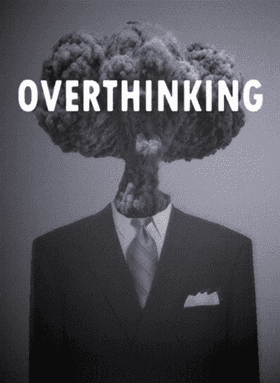
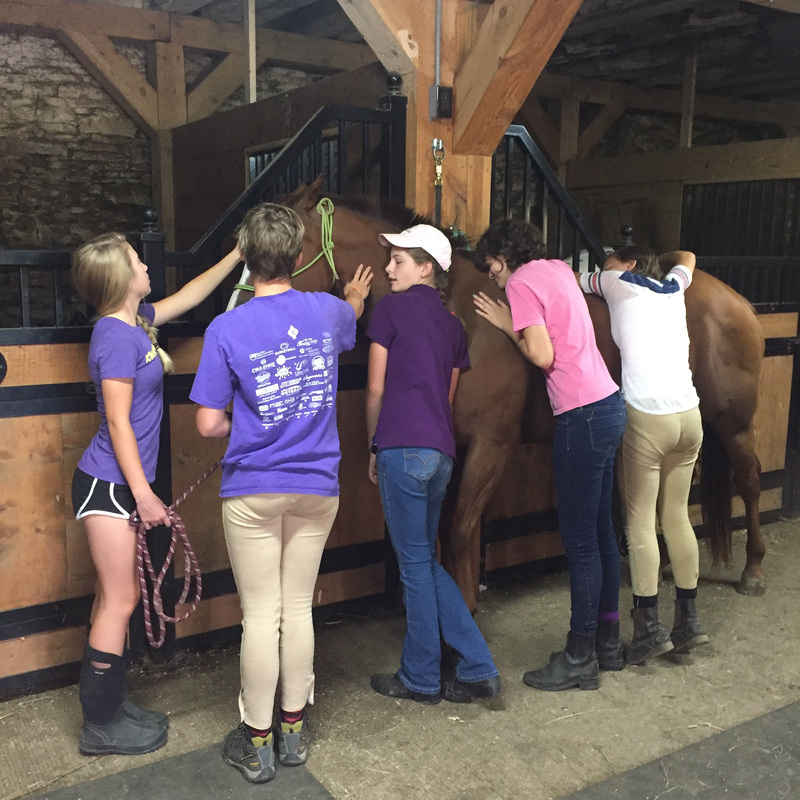
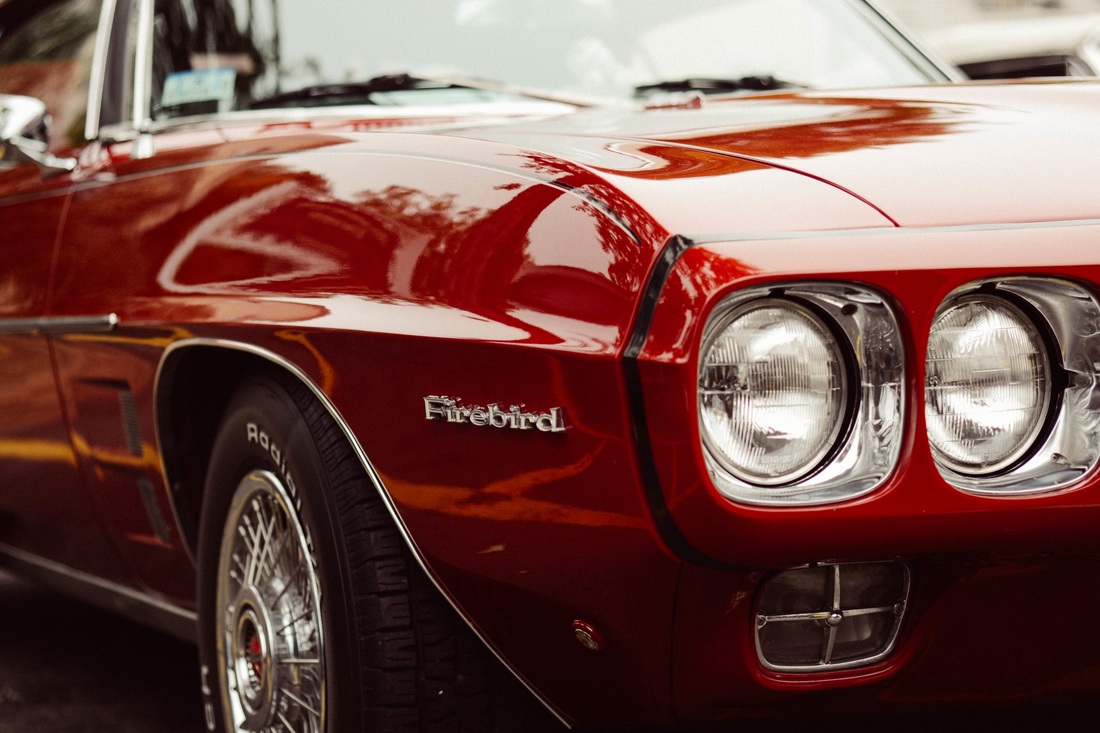
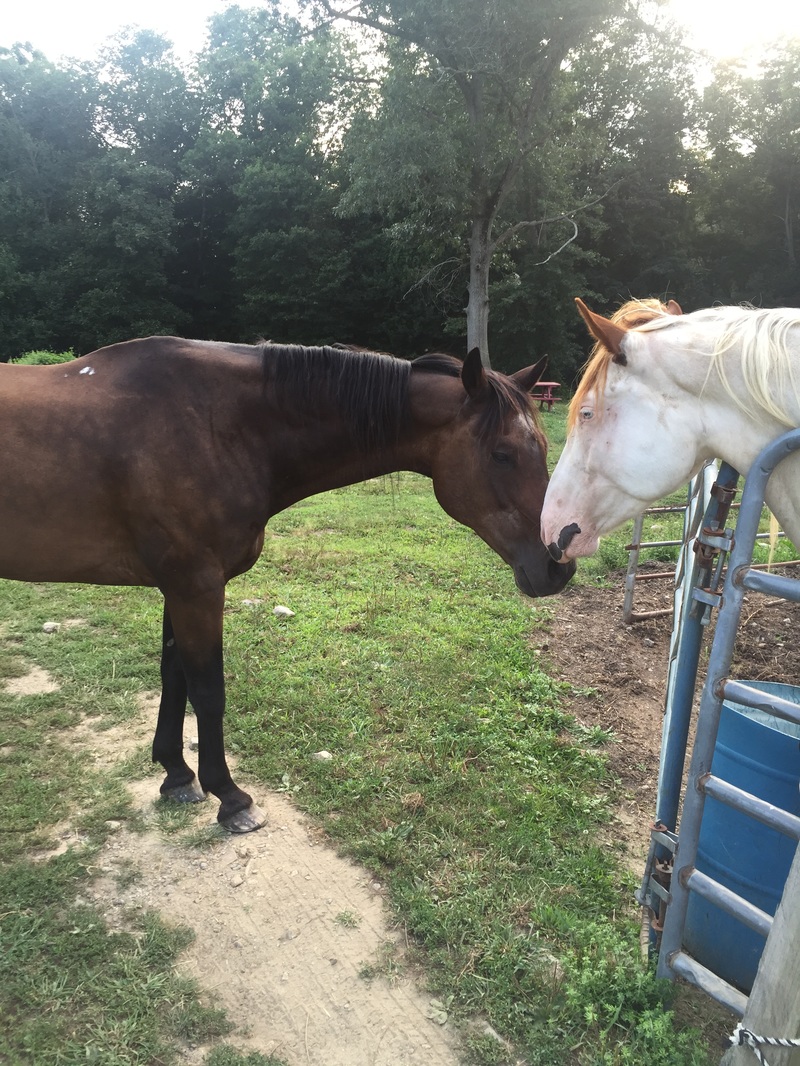
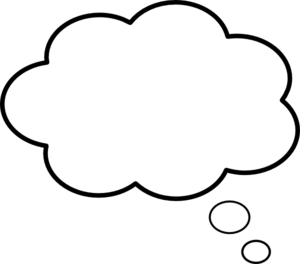
 RSS Feed
RSS Feed